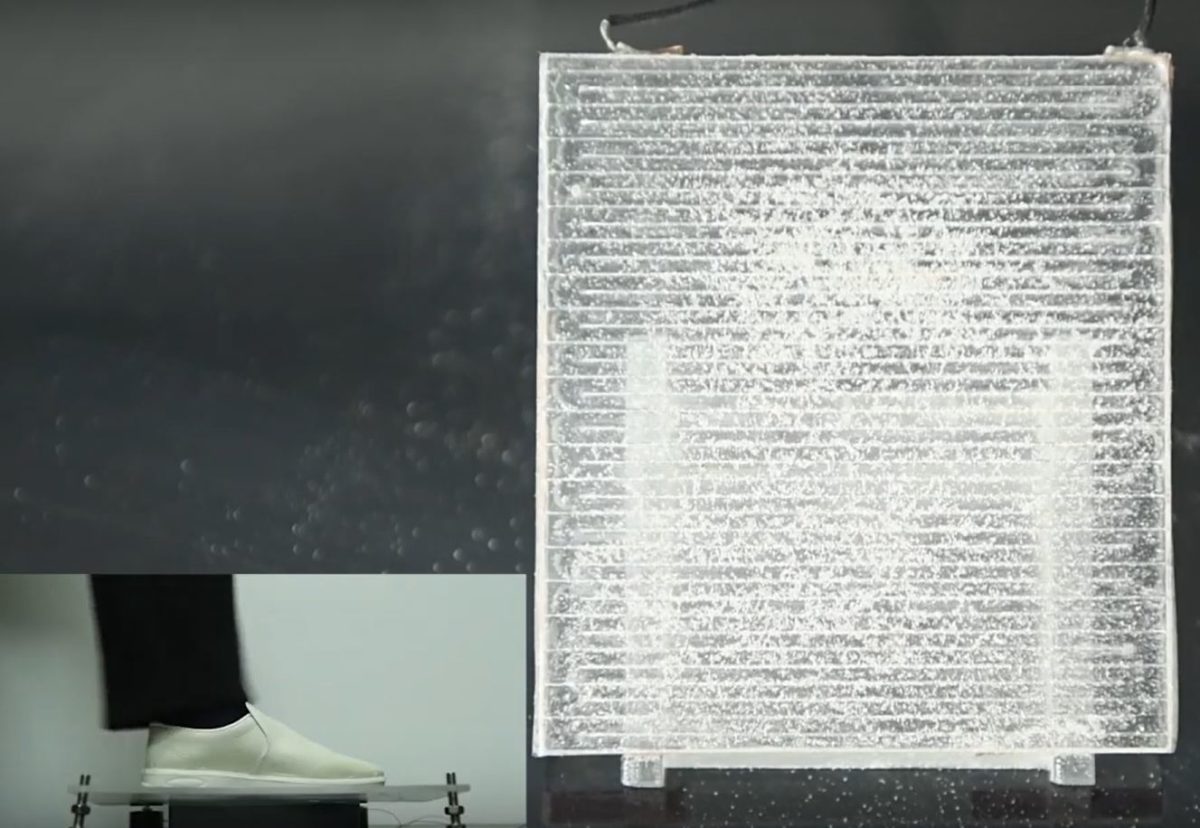Scientists from the Korea Advanced Institute of Science and Technology (KAIST) have used a triboelectric generator (TENG) to develop a cleaning system for PV modules.
TENGs can convert mechanical energy into electricity through friction between different materials. They recently attracted significant attention due to their high instantaneous output power, the broad availability of materials, the sustainable and cheap fabrication process, and the different working modes they offer, depending on the applications.
The cleaning system combines the TENG with an electrodynamic dust shield (EDS), which uses traveling-wave or standing-wave electrodynamic effects to repel dust particles from a surface. The use of the EDS, on the other hand, is not new in solar energy research, as previous scientific works considered its use as a potential anti-dust solution for mitigating soiling loss.
The researchers said that the triboelectric generator they developed can be energized by stomping a foot on it several times. It can also vibrate without losing energy and generate alternating high voltage for periods of about 10 seconds.
“The generator showed a high energy conversion efficiency of about 50.8%, and it was confirmed that it could generate a high level of output to sufficiently operate the dust removal panel with a maximum voltage of 2.6 kV,” the scientists explained, noting that the achieved efficiency is considerably higher than that of similar TENGs.
The South Korean researchers claim that the system was able to remove 79.2% of the dust from a solar panel after 12 foot strikes. They described their results in “Highly efficient long-lasting triboelectric nanogenerator upon impact and its application to daily-life self-cleaning solar panel,” which was recently published in Nano Energy.
“Collectively, this work provides a strategy for harvesting energy from impacts and offers a useful application for self-cleaning solar panels,” they said. They illustrated how the system works in a video clip published on KAIST's YouTube channel.
This content is protected by copyright and may not be reused. If you want to cooperate with us and would like to reuse some of our content, please contact: editors@pv-magazine.com.




By submitting this form you agree to pv magazine using your data for the purposes of publishing your comment.
Your personal data will only be disclosed or otherwise transmitted to third parties for the purposes of spam filtering or if this is necessary for technical maintenance of the website. Any other transfer to third parties will not take place unless this is justified on the basis of applicable data protection regulations or if pv magazine is legally obliged to do so.
You may revoke this consent at any time with effect for the future, in which case your personal data will be deleted immediately. Otherwise, your data will be deleted if pv magazine has processed your request or the purpose of data storage is fulfilled.
Further information on data privacy can be found in our Data Protection Policy.